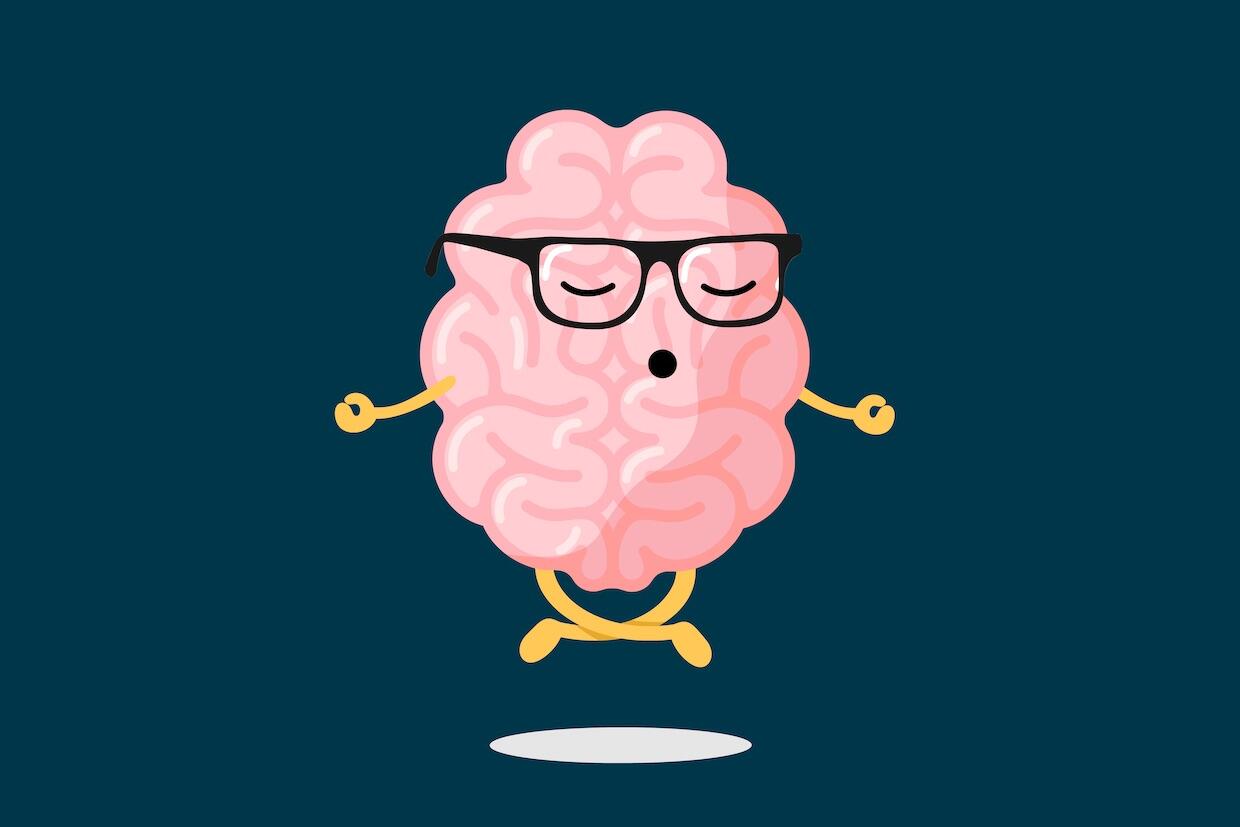
March 4, 2021
Stressed? This lab can help you learn about mindfulness, meditation and improving your well-being.
Share this story
Many people are experiencing stress and anxiety these days. The type of continuous change we have experienced over the past year can be overwhelming. Between the pandemic, quarantine, social injustice and virtual learning, anxiety has risen to new levels.
At Virginia Commonwealth University, students seeking tools and resources to manage their stress and anxiety are turning to the Resilience Lab in the university’s Health Promotion and Well-being Center.
“We started the lab in 2019 because we wanted a resource for students who didn’t necessarily need ongoing counseling support but did want to learn some tools to manage stress,” said Mia Liadis, a health educator at The Well. “We saw a need for a resource where students could benefit from meeting with someone who could provide skills and education about their health.”
The Resilience Lab offers students one-time nonclinical appointments to talk with health and wellness experts about what is causing their stress and what they can do to help manage it.
“It’s important now more than ever for us to think about our well-being and the well-being of others,” Liadis said. “This program allows folks to create their own wellness plan: What can you have in place to manage stress? Who can support you? What tools do you need for when stress happens?”
During appointments, staff talk about mindfulness as a tool to help manage stress and anxiety. “Practicing mindfulness and meditation on a regular basis changes the stress chemicals in your brain,” Liadis said. “Studies have shown you are able to build your brain muscles to be present over time. You are able to notice when stressors are arising for you.”
The act of mindfulness is being able to recognize what is going on in your head without getting carried away with the thoughts, Liadis said. That is accomplished by allowing yourself to be present in the moment.
“You look at what you can control instead of dwelling on the past or worrying about the future,” Liadis said. “Meditation is one of the ways we offer mindfulness techniques.”
The experts at the lab practice different types of meditation, including introducing participants to body scan meditations where you look inward for places you hold tension — such as your shoulders — and being intentional about relaxing your muscles, as well as guided imagery to stimulate your imagination.
“Mindfulness has been shown to reduce stress, anxiety, symptoms of trauma and to lower blood pressure,” Liadis said. “When we do one-on-one meetings with students, we typically do a 10-minute body scan with them to get practice and get familiar with mindfulness.”
For students who would benefit from a physical component paired with meditation, The Well refers them to VCU Recreational Sports, which offers multiple types of yoga.
“We believe some people may find benefits to moving your body when it comes to mindfulness,” Liadis said. “Yoga and Pilates focus on moving your body in an intentional way and knowing what’s going on in your body. It’s a great resource.”
The Resilience Lab also has a mental wellness resource guide that includes everything from information on sleep to stress management.
“It’s an open-access document that has videos, articles and apps,” Liadis said. “We have watched and vetted all the content. It is a consistently updated document that’s available for everyone.”
In addition to one-on-one appointments, The Well also offers weekly virtual guided meditations through the Resilience Lab. These sessions are open to employees, staff and students on Wednesdays at 2:30 p.m. and on Thursdays at noon. Links to the meditations are the same each week.
“We want folks to access tools that will work for them,” Liadis said. “It’s important for us to work across a diverse group when we are talking about boosting skills for mental health.”
Subscribe to VCU News
Subscribe to VCU News at newsletter.vcu.edu and receive a selection of stories, videos, photos, news clips and event listings in your inbox.







